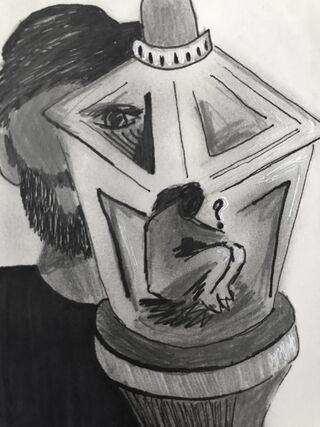Gaslighting
Not Every Disagreement About Reality Is Gaslighting
Gaslighting may not be so common; there is a less malicious explanation.
Posted September 13, 2021 Reviewed by Davia Sills
Key points
- Gaslighting has become a common term and certainly occurs at alarming rates.
- However, not every instance where there is a disagreement about reality is gaslighting.
- People's perceptions differ due to internal mechanisms, and yet they are often certain of their perception.
- There are benefits to questioning others' and one's own perception.

The term gaslighting has become quite common. It is seen frequently on social media, and people often mention it being done to them. Yet is it as prevalent as it is made out to be? I argue there is a less malicious explanation.
Gaslighting was first used in a play in 1938, and then film versions of the play in the early ’40s. There is some evidence the term was used metaphorically in the 1950s and ’60s. There was also some use of the term in the ’90s, but it reached its current popularity during the 2016 election, predominately due to accusations that presidential candidate Donald Trump was gaslighting voters.
Is it gaslighting or not?
Certainly, there are people who, as the definition states, insidiously attempt to manipulate and control another individual by putting forth a false narrative that makes the victim question their thoughts, memories, and the events surrounding them. The perpetrator of gaslighting is emotionally abusive. And their abuse can lead the victim to question their own reality. Actual incidents of gaslighting should not be minimized.
Though gaslighting is certainly a verifiable act, there is another plausible explanation for disagreement. People often experience reality differently. Everyone is convinced of his perception of reality and his memories about it. But any casual discussion of memory with loved ones can demonstrate a difference in remembrance. People remember events differently all of the time. That isn’t gaslighting. When it happens, people chalk it up to their family member having a faulty memory.
The actual reason may be differing perceptions.
Identical twins who share all of the same genes and often the same environment still develop different personalities. They still experience the world differently. Some of this difference in experience can be attributed to individual perception. Though they have the same genes and often the same experience, their perception of the world differs.
I often make the argument on this forum that everyone would benefit from creating doubt in their perception (see, “Eight Ways to Stop Thinking” or “How to Control Your Mind”). It is a hallmark of my work as a therapist, as issues that people frequently come to therapy for (depression, anxiety, substance use, relational issues) often involve a level of misperception (for example, with depression, seeing an event as predominately negative when it is equally positive and negative). My goal is always to help the client challenge their thoughts and perception, view things differently, and not be as attached to their beliefs (particularly the ones that are leading to distress).
I have also recommended creating doubt in one's perception in my work with couples. Many couples perceive events drastically differently than one another. Hearing the differing sides, one might assume that gaslighting is occurring. But often it is not. Each individual simply perceives the event differently. Because of each partner's conviction, there is argument and often the feeling that one is being somehow wronged. As I suggested in the post “The Zero-Sum Relationship,” everything isn’t black and white, right or wrong, though there is a tendency to see it so.
A client recently reported to me that she tried to have a conversation with her mother about the pain and abuse she experienced in her childhood. Her mother denied any wrongdoing and claimed the client was not remembering accurately. The client reported in therapy the discussion was just gaslighting. Perhaps this is true.
But another explanation is that the mother has erected so many defenses that she can’t see her wrongdoing. She honestly believes she wasn’t abusive. This is about perception, not about being insidiously manipulative.
There is a quote I have used often, “There are three sides to every disagreement: yours, mine, and the truth.” The assumption is that neither has the truth, only their version. In gaslighting, an individual knows he is being deceitful to manipulate and gain control by making the victim question her reality. This certainly happens. Other times, a partner may lie, which is not gaslighting but is unhealthy. But in a whole other set of disagreements, people are just seeing reality differently.
Key takeaways
There are benefits to believing you are being gaslighted. It creates psychological distance from the disagreement. If one identifies she is being gaslighted, she often automatically becomes less engaged in the disagreement. This distance is often helpful in quelling emotion and preventing further conflict. This is a positive of the term gaslighting becoming more common. If one is being gaslighted, this will certainly help him break the effect of it and help prevent being the victim of further abuse.
There are also benefits of not trusting perception. Distrust of another’s perception is common. But to not trust your own is the beginning of enlightenment. Not trusting your own perception doesn’t have to mean you trust others'. It can be an understanding that none of us have a grasp of the truth in its entirety. This mindset is a mindful one and leads to greater psychological health.
Copyright William Berry, 2021




